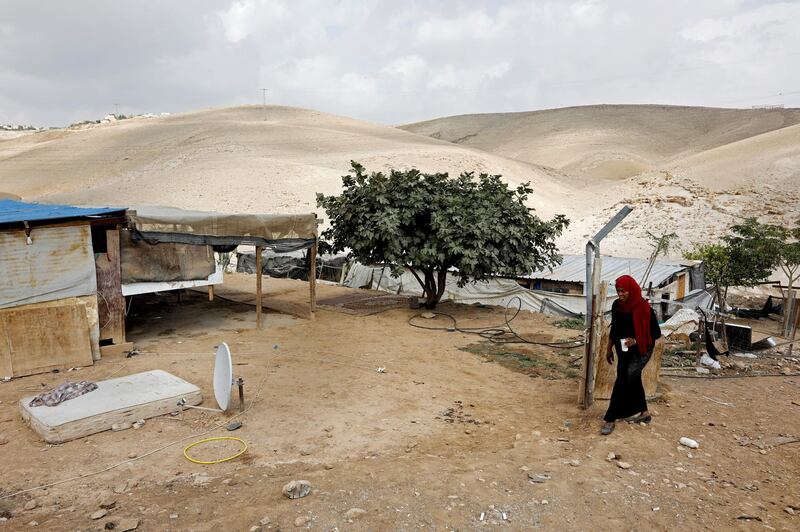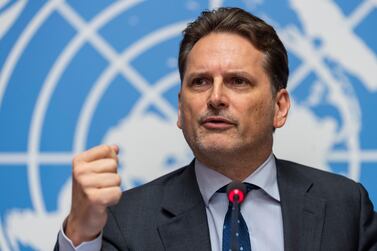Israel has postponed the demolition of the Bedouin village of Khan Al Ahmar in the occupied West Bank for another six months, after the country concludes its second election in months, according to local media reports.
The Israeli State Prosecutor’s Office informed the High Court of Justice of the delay in a hearing on a petition to carry out the demolition, according to Israeli media reports.
The village, home to roughly 200 residents, has been the subject of a tug-of-war between the Palestinians and Israelis. The Israeli right wants to see the village demolished, alleging that it is built without permission. Palestinians say they cannot obtain the requisite permits to build due to Israeli obstructions. and replaced with an Israeli settlement.
Rights groups say that Israel’s government seeks the village’s demolition as it would allow it to connect settlements across the occupied West Bank and prevent a contiguous Palestinian state.
Israeli Prime Minister Benjamin Netanyahu has repeatedly promised to demolish the outpost. Israeli media outlets reported that US pressure had caused a delay on the part of the Israeli government.
The Bedouin hamlet lies in Area C of the occupied West Bank, which makes up 60 per cent of the total territory. This area is exclusively under Israeli control and dozens of Israeli settlements are located there. Much of the international community views the settlement enterprise as illegal.
Israel places restrictions on Palestinian development in this area and has conducted dozens of home demolitions there in recent years.
As part of interim peace deals in the 1990s, the West Bank was carved up into autonomous and semi-autonomous Palestinian areas, known as Areas A and B, and Area C, which is home to some 400,000 Israeli settlers.
The Palestinians claim all the West Bank and say that Area C, home to an estimated 150,000 to 200,000 Palestinians, is crucial to their economic development.
Washington wants to postpone the demolition until it has unveiled the majority of its peace plan, which won’t be fully unveiled until Israel’s second elections in months in September.
It is hosting an economic workshop in Bahrain next week at which it plans to unveil the financial component of its plan. Israeli and Palestinian officials will not be in attendance, but a series of Arab states will be.
American officials want to ease tensions around the rolling out of the plan to give it as much chance as possible of being well-received by the Palestinians, reports said, even though the Palestinians have said they will reject any plan put forward by the Trump administration.






